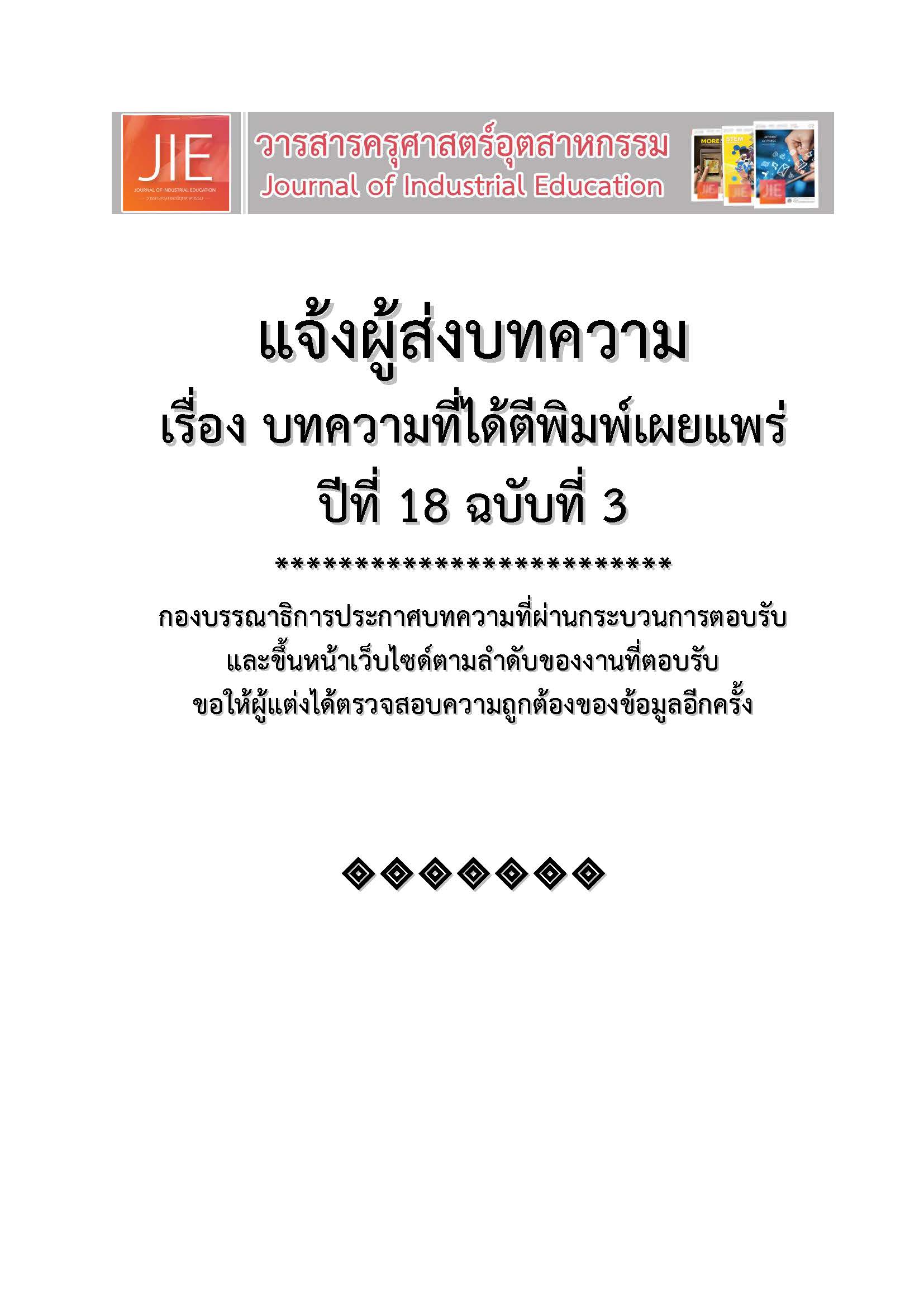THE DEVELOPMENT OF EDUCATIONAL GAME AS A SUPPLEMENTARY TOOL FOR LEARNING ON THE TOPIC OF PLANT REPRODUCTION AND GROWTH FOR GRADE 11 STUDENTS
Keywords:
Educational Game, Efficiency, Plant Reproduction and GrowthAbstract
The objectives of this research were 1) to develop educational game as a supplementary tool for learning on the topic of plant reproduction and growth for grade 11 students and 2) to study the satisfaction of students with this educational game. The sample group was consisted of 41 students in one classroom of grade 11 mathematics-science program at a high school in Nonthaburi Province that obtained by cluster random sampling. The research tools were consisted of 1) eleven lesson plans on the topic of plant reproduction and growth, 2) educational game, 3) a lesson plan assessment, 4) educational game assessment for expert, 5) the test during learning and the test after learning, and 6) educational game satisfaction questionnaire. The data was statistically analyzed including the mean score, percentage, and standard deviation. The results showed that the Index of Item-Objective Congruence (IOC) from 3 experts about the suitability of all lesson plans was 0.90 - 0.93. Moreover, 3 experts assessed the accuracy and suitability of the educational game, both in terms of content and strategy, at very good quality level. After using the educational game with the sample group, the efficiency of the educational game about the plant reproduction and growth (E1/E2) was 83.17/81.36. In addition, the satisfaction of students with the educational game was at good level.
References
Rogers, C.R. 1969. Freedom to learn. Columbus: Charles E. Merrill Press.
Wichanee, P. 2015. A study of learning achievement biology on “Kingdoms of Life” by using brain -based learning (BBL) with games for matthayomsuksa 4 students. Veridian E-Journal, Silpakorn University (Humanities, Social Sciences and arts), 8(2), p.450-463.
National Institute of Educational Testing. 2019. Summary Table of Ordinary National Educational Testing of Grade 12 in the academic year 2018. Retrieved June 24, 2019, from http://www.newonetresult.niets.or.th/AnnouncementWeb/PDF/SummaryONETM6_2561.pdf
National Institute of Educational Testing. 2019. Summary Table of 9 core subject Testing of Grade 12 in the academic year 2019. Retrieved June 24, 2019, from http://www.niets.or.th/th/content/view/9745
Jeekratok, K. 2017. Development of educational computer game based on constructivism theory on the topic of “kids garden”. In The 3rd National Conference on Technology and Innovation Management. (p. 1-7). Maha Sarakham: Rajabhat Maha Sarakham University.
Khemmani, T. 2016. Teaching and Knowledge for effective learning process management (20th Edition). Bangkok: Chulalongkorn University Press.
Chanaken, K. 2013. A Development of Online Game on Sufficiency Economy Theory by Simulation Situation Technical. Master of Computer Technology. King Mongkut’s University of Technology North Bangkok.
Kulsawat, T. 2015. The knowledge management of the development of research quality in Faculty of Political Science and Law. In The research tools and quality testing conference. Chonburi: burapha university.
Gutierrez, A. 2014. Development and Effectiveness of an Educational Card Game as Supplementary Material in Understanding Selected Topics in Biology. CBE life sciences education journals, 13(1), p.76-82.
Brahmawong, C. 2013. Developmental Testing of Media and Instructional Package. Silpakorn Educational Research Journal, 5(1), p.1-20.
Qian, M. 2016. Game-based Learning and 21st century skills: A review of recent research. United State of America: Elsevier.
Ketsuwan, P. 2015. The Xvolution Board Game. Saravit (National Science and Technology Development Agency), (23), p. 2-5.
Preedakorn, A. 2014. Design A Boardgame to Study Colourcircle for Students in Grade 6. Master of Education Thesis (Art Education), Srinakharinwirot University.
Wangthaphun, T. 2018. The Development of Inquiry Model (5Es) Based Instructional Package for Grade 10 Students on “Biomolecules”. Journal of Industrial Education, 17(3), p. 195-202.
Downloads
Published
How to Cite
Issue
Section
License
"The opinions and contents including the words in papers are responsibility by the authors."
"ข้อคิดเห็น เนื้อหา รวมทั้งการใช้ภาษาในบทความถือเป็นความรับผิดชอบของผู้เขียน"



